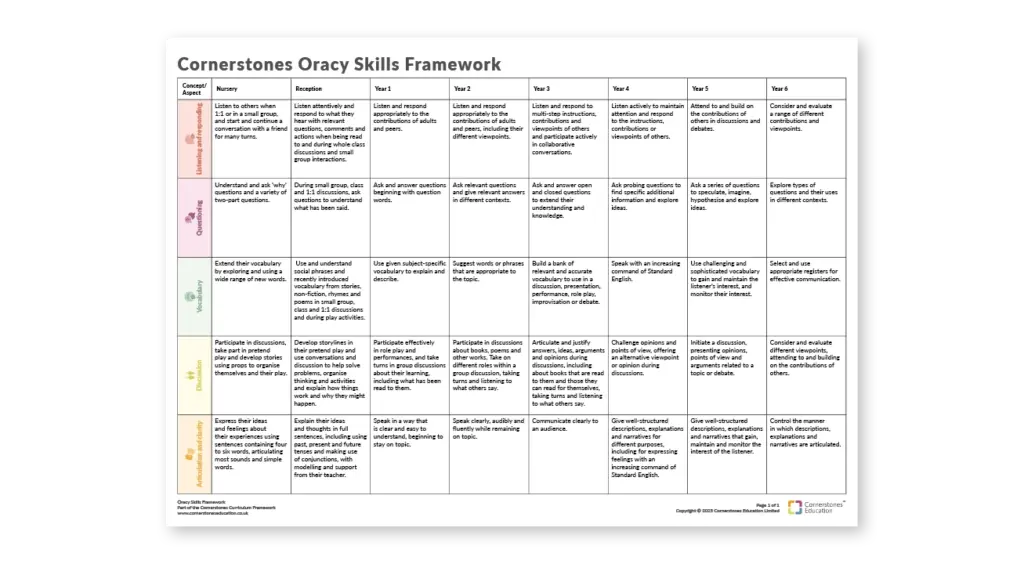The latest curriculum review has put oracy firmly in the spotlight. Sitting alongside the reading and writing frameworks, a dedicated oracy framework signals a renewed focus on speaking and listening skills as essential for learning and life.
But what does this mean for schools and teachers?
In this blog, we’ll explore:
- what oracy is and why it matters
- how strong oracy skills develop
- what effective oracy provision looks like
- practical steps you can take now
What is oracy?
The National Literacy Trust defines oracy as ‘the range of skills and techniques we use to express our thoughts verbally, including how well we listen, understand and respond.’ In short, oracy is about communication – speaking clearly, listening actively, and engaging thoughtfully.
Why oracy skills are crucial
Strong communication skills in early childhood are linked to better academic outcomes and greater confidence later in life. Conversely, difficulties with speech and language in Key Stage 1 can lead to lower attainment at GCSE and beyond.
The challenge is significant. Nearly one-third of children start school without the oracy skills they need, and for disadvantaged children, this rises to almost half.
Catching up is hard, so schools must provide meaningful opportunities for oracy from the earliest stages.
Children with strong oracy skills can:
- express ideas and opinions
- ask questions and interrogate answers
- collaborate and share thinking
- understand complex concepts
- explain needs and wants
- communicate confidently in varied situations
Building oracy skills over time
Developing oracy skills takes time, thought, and targeted support to ensure all children achieve. Here’s how schools can help by:
- supporting parents to create language-rich environments when children are young
- identifying and addressing speech, language, vision or hearing issues early
- embedding oracy opportunities across all aspects of school life
- providing targeted interventions for older pupils who need extra help
What does good oracy provision look like?
Every school is different, but effective oracy provision is created when whole-school strategies are implemented through coherent, well-planned classroom practice.
To improve oracy across school, senior leaders could:
- give oracy equal status to other subjects by appointing an oracy lead
- audit current practice and create a development plan
- offer opportunities for oracy inside and outside the classroom
- celebrate children’s oracy achievements
In the classroom, teachers could:
- establish clear guidelines for listening and speaking
- plan for oracy opportunities during lessons, assemblies, extra-curricular activities and whole-school events
- teach specific skills, such as:
- maintaining eye contact
- turn-taking
- effective questioning and explanations
- using ambitious vocabulary, tone, and pace
- speaking like an expert in different subjects
- sequence ambitious and engaging tasks logically so all pupils can participate and succeed
- encourage the use of oracy to deepen subject knowledge
- assess progress and plan next steps
Get ahead with the Cornerstones Oracy Framework
The government’s oracy framework may be years away, but you don’t have to wait. The Cornerstones Oracy Skills Framework is ready to use now – robust, practical and designed to integrate seamlessly into your curriculum, which you can download below.
If you want to see how we embed oracy across our entire curriculum, feel free to book a free online walk-through with one of our curriculum advisers.

Further Reading
The National Literacy Trust and Voice 21.org also have a wealth of information and resources to support oracy in schools.


